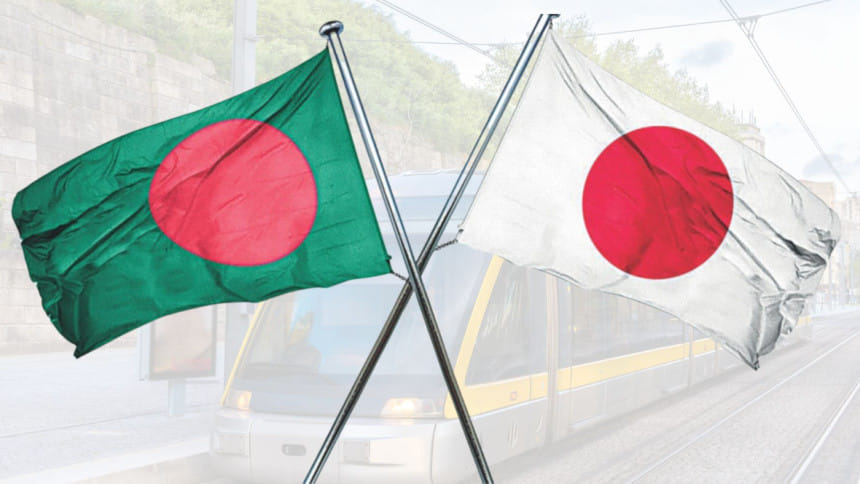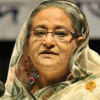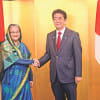Japan eyes Bangladesh as key investment hub

Emerging from the initial uncertainty following last year's political transition, Japan has re-engaged with Bangladesh in a robust way, which was reflected during Chief Adviser Muhammad Yunus' recent visit to Tokyo, according to foreign-policy and trade analysts.
During the trip, Japan agreed to provide Bangladesh with budgetary support alongside loans and grants worth $1.063 billion, while eight other memoranda of understanding were signed covering human-resource development, worker recruitment, the business environment, and factory set-ups in the Bangladesh Special Economic Zone.
The chief adviser and his Japanese counterpart Prime Minister Shigeru Ishiba also committed to signing an Economic Partnership Agreement (EPA) in the coming months -- an indication of Tokyo's eagerness to relocate factories here under its China Plus One strategy, analysts said.
Japan is in the process of providing five patrol boats to the Bangladesh Navy, and the two countries have agreed in principle to sign an agreement on Transfer of Defence Equipment and Technology as part of security cooperation.
"Since independence, Japan has been the largest development partner of Bangladesh. It wants to relocate many more factories here, but faces different forms of bottlenecks. That's also true in the case of recruiting workers to Japan," said Abdullah-Al Mamun, associate professor of Japanese Studies, University of Dhaka.
Since 1972, Tokyo has provided more than $24 billion in loans and grants for infastructure projects such as the metro rail, Dhaka airport's third terminal, Araihazar Special Economic Zone and Matarbari Deep-Sea Port.
More than 350 Japanese companies currently operate in Bangladesh.
Abdullah, who is also executive director of Japan-based think-tank Pan-Asia Research Institute (PARI), said "Japan is usually reluctant to provide budget support".
"This must be a great relief to our economy that Japan this time is providing budget support to Bangladesh. It's a gesture of cemented relationship," he said.
"Under the China Plus One business strategy, Japan has been relocating many of its factories to other countries including in ASEAN and South Asian countries," he said, observing that Bangladesh has lagged behind Vietnam and Thailand in capturing Japanese relocation.
"Complicated procedures at the National Board of Revenue and ports, frequent changes of law, slow supply chain network became bottlenecks on the way of Japanese investments into Bangladesh," Abdullah said.
Tokyo's plan to build an industrial value chain under the Bay of Bengal Industrial Growth Belt (BIG-B), centred on Matarbari and linked to Northeast India, Nepal and Bhutan, could be a game-changer for Bangladesh, he added.
After Bhutan, Japan will become only the second country to sign an EPA with Bangladesh, enabling Japanese firms to retain duty-free, quota-free benefits once Bangladesh graduates from LDC status next year.
"How much of this opportunity we can use depends on us. Our investment environment needs a radical improvement," the professor said.
Maria Howlader, secretary-general of the Japan-Bangladesh Chamber of Commerce and Industry, said apart from complexities at the customs, taxes and licensing issues, Japan wants political stability and security.
"As we are making reforms, I am confident that more Japanese companies will be investing here in the coming days," she told The Daily Star.
She lauded the new MoUs aimed at training and recruiting Bangladeshis in Japan.
Restaurant group Watami has already announced a training centre in Dhaka.
Though only about 35,000 Bangladeshi skilled workers had gone to Japan as of 2024, Japanese authorities and firms expect 100,000 recruits over the next five years in caregiving, construction, farming, driving, factory and food sectors.
"Japan maintains 100 percent compliance and transparency in the system. We should maintain it at every step -- call it in quality of language and recruitment steps," said Maria.
Syed Masudur Rahman, director of Japan-Bangladesh joint venture Kokorazashi, said rising Bangladeshi presence in Japan will spur exports, "We should robustly work to harness the Japanese market. Any lethargy means we will lose the opportunity".
Abdullah added under Japan's Free and Open Indo-Pacific strategy, Tokyo seeks "peace, stability and prosperity" in the region.
Supporting Bangladesh in security sector to achieve this objective as well as protect Japanese investments is also an important area of cooperation, he said.
"Bangladesh should pursue strongly to make the best use of Japanese interest in this region, especially Japanese investment and labour market," he said, adding that "it will boost our economy, remittance and jobs sector".

 For all latest news, follow The Daily Star's Google News channel.
For all latest news, follow The Daily Star's Google News channel. 








Comments